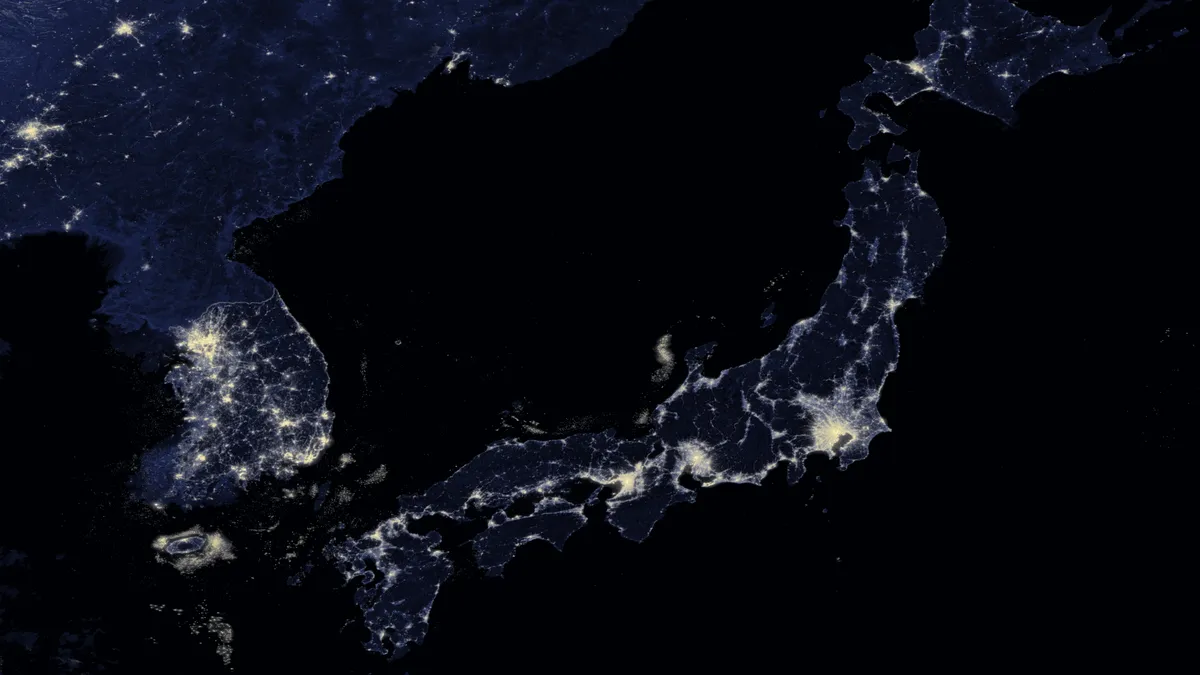
On the night of August 19, a stunning fireball illuminated the skies over Japan, briefly transforming the night into day before it fragmented over the Pacific Ocean. This breathtaking celestial event occurred at precisely 11:08 p.m. local time, and the fireball was seen streaking southwest across southern Japan.
The magnificent descent of the fireball was captured by numerous surveillance cameras and dashcams in western cities, including Kagoshima and Kumamoto. Remarkably, the phenomenon was also visible from as far east as Osaka's Kansai Airport, which is situated approximately 124 miles (200 kilometers) away from the fireball's trajectory. This widespread visibility highlights the intensity of the event and its significance in the realm of astronomy.
Footage shared on social media showcased the fireball emitting a series of stunning green-blue flashes that overwhelmed some camera sensors. As it approached the horizon, the meteor produced a final flare of orange-red light before breaking apart, creating an unforgettable spectacle for those fortunate enough to witness it.
These dazzling displays, often referred to as shooting stars, occur when chunks of ancient space debris, remnants from the formation of the solar system, collide with Earth's atmosphere. The intense friction caused by the atmosphere causes these particles to burn up, resulting in a striking visual spectacle that can easily be seen with the naked eye.
Among these celestial events, larger pieces of debris that shine brightly enough to outshine even the most luminous planets in the night sky are classified as fireballs. The recent fireball event on August 19 is particularly noteworthy, coinciding with the ongoing Perseid meteor shower, which is renowned for producing spectacular fireballs. Additionally, the weaker kappa Cygnids (KCG) meteor shower is currently active.
Despite the timing of the August 19 event with ongoing meteor showers, it remains uncertain whether the fireball was a result of the Perseids or a random piece of space debris entering Earth's atmosphere, known as a sporadic event. Further analysis may shed light on the origins of this mesmerizing fireball and contribute to our understanding of celestial phenomena.
In conclusion, the fireball witnessed over Japan on August 19 serves as a reminder of the wonders of our universe. Whether linked to a meteor shower or a sporadic occurrence, it captivated the attention of many and continues to fuel interest in astronomy and the mysteries of space.